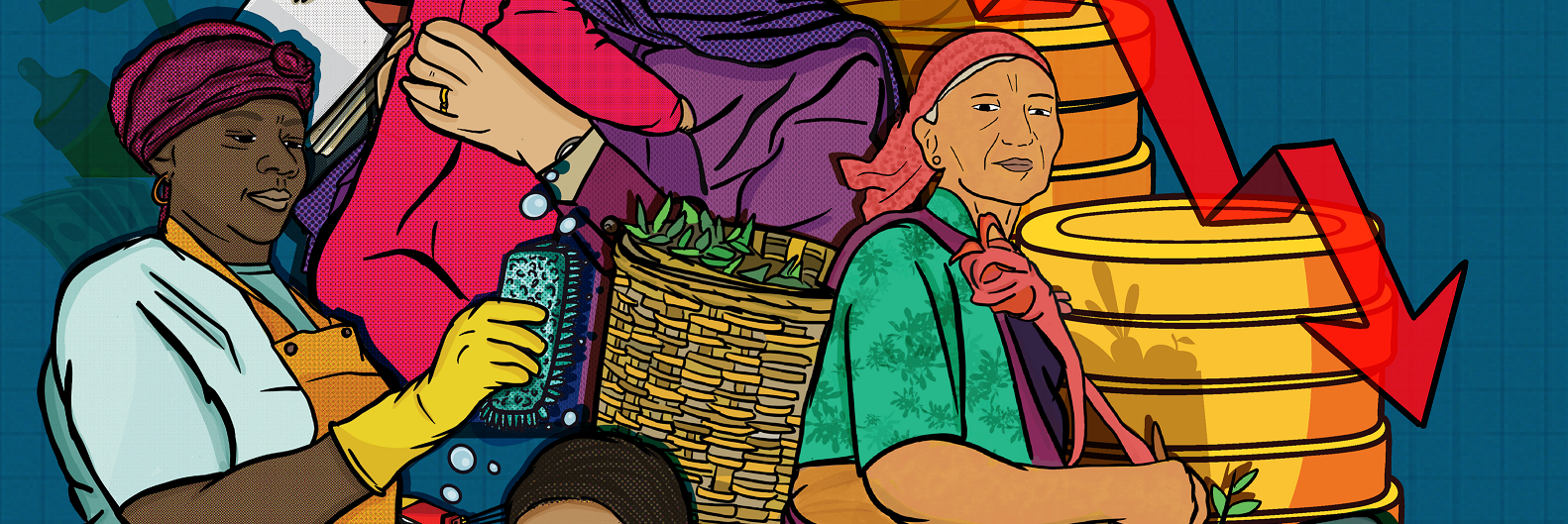Time to Care
Taking care of each other isn’t a choice, it’s a human need.
Why is paid and unpaid care an issue?
Women do the vast majority of paid and unpaid care, in the UK
Why is paid and unpaid care unfair?
For too long, unpaid carers have been undervalued by governments and society. It's time for them to be recognised and heard.”
Katy Styles is the founder of We Care Campaign and an unpaid carer, in the UK
How can we change this?
What can I do to take action on care?
Let's Start Telling a New Story About Care
Illustration by Alex Bush
Do you want to talk more effectively to the UK public about the value of all care?
Read the toolkit we have developed to find some helpful recommendations.
Partnerships are key to our work
Oxfam collaborates with partners. Together, we have more impact and a stronger voice to demand better for all carers.
- We work with others as part of the Carer Poverty Coalition, to end poverty amongst unpaid carers for disabled, ill or older people.
- We are part of the End Child Poverty Coalition (UK) where we campaign with others to tackle parent poverty.
Valuing and investing in care in Scotland
A Scotland that Cares
Oxfam Scotland is partnering with more than 60 organisations as part of the A Scotland that Cares campaign.
Together, they’re urging the Scottish Government to end the invisibility of care within its National Outcomes.
If you live in Scotland, ask the party leaders in the Scottish Parliament to back this vital change to help create a Scotland that cares.
Oxfam Cymru
Sarah Rees: Oxfam Cymru
Holding the Welsh Senedd to account on care
Across Wales, Oxfam Cymru work with partners to help build a fairer Wales, free from the injustice of poverty and inequalities that fuel it.
We all need care at some point in our lives. Those who care for us, whether they be unpaid carers, parents or paid care workers, face poverty as a direct consequence of caring.
Bringing the voices and experiences of those who care, to decision makers will create a Wales that truly cares.
Paid and Unpaid Care in the UK
Women provide £382bn worth of unpaid childcare per year in the UK
Women provide £50bn worth of unpaid adult social care per year in the UK
Women represent more than 80% of the workforce in adult social care in the UK
The King's Fund: Overview of the Health and Social Care Workforce
